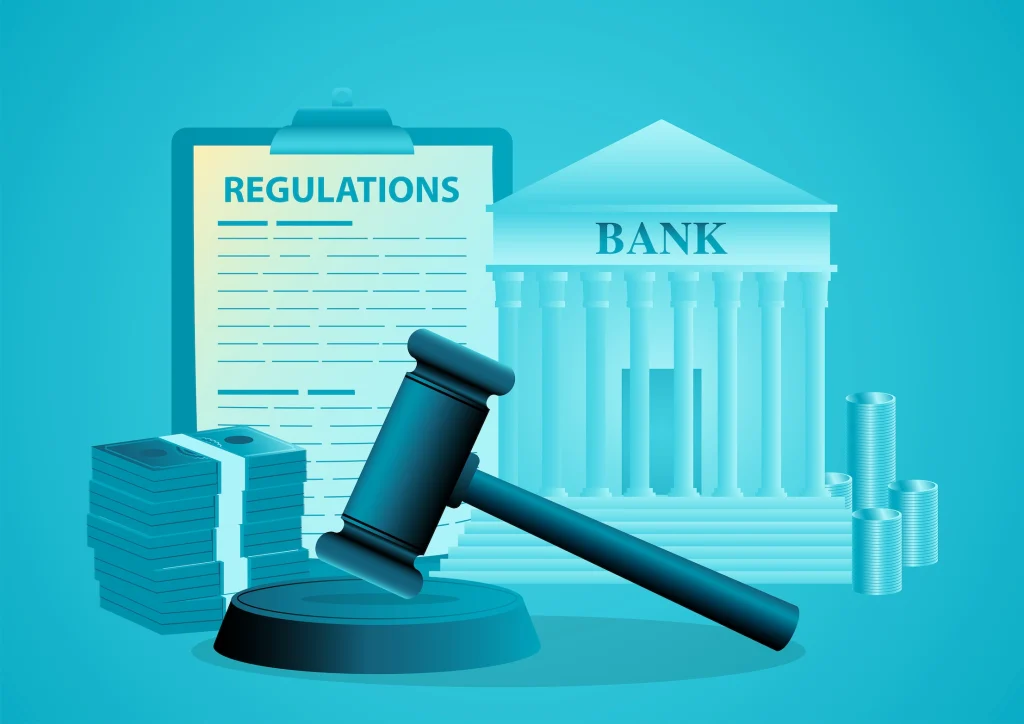The Process of Filing a Lawsuit Against an Juristic Person/Individual in Thailand for Default of Payment

- Introductory Statement: Business transactions in Thailand are regulated by the Civil and Commercial Code (CCC). One of the most critical components of these agreements is the assurance that payments will be made in accordance with the terms. A breach of payment may result in legal action if one party fails to fulfill this obligation. The purpose of this article is to provide an overview of the procedures for prosecuting an individual/juristic person in Thailand for nonpayment. It will address critical legal issues, the mechanics of the process, and the actions that creditors can take to recover their funds.
- Legal Basis for Payment Breach Claims in Thailand: The primary legal justification for submitting a breach of payment claim is the CCC.
- Contracts: The conditions of a contract are binding on both parties, as stated in the CCC. Nonpayment in accordance with a valid contract constitutes a breach. A legitimate contract is composed of four critical components: an offer, acceptance, consideration (something of value exchanged), and the intention to establish legal relationships.
- Legal Obligations: Obligations to pay may also be imposed by legal requirements that are not related to contracts, such as those associated with torts (wrongful conduct) or unjust enrichment.
- Pre-litigation Considerations: Considerations to consider prior to initiating legal proceedings, creditors should implement several measures to optimize their likelihood of success:
- Demand letter: Creditor should send the debtor a formal demand letter that explicitly specifies the amount owed, the cause for the claim (contract, invoice, etc.), a payment deadline, and the potential consequences of nonpayment (e.g. court proceedings). This letter demonstrates that the creditor tried to resolve the issue amicably, which could be of significance in court.
- Review of documentation: Review all critical documents, including invoices, contracts, delivery receipts, correspondence, and payment records. The creditor’s argument will be predicated on these documents.
- Checking the debtor’s financial situation: It is crucial to investigate the debtor’s financial situation. If the debtor is insolvent or experiencing significant financial difficulties, it may not be worthwhile to pursue legal action unless assets that could be seized are identified. However, the corporation creditor can write of bad debts from the judgment in case the debtor has no assets to repay the debts.
- Mediation and negotiation: Consider attempting to negotiate or mediate with the debtor prior to proceeding to court. These alternative methods of dispute resolution are generally more efficient and cost-effective.
- Initiation of the Legal Action: If the creditor is unable to resolve the debt prior to filing a lawsuit in the appropriate Thai court, they may file a lawsuit.
- Jurisdiction: It is crucial to select the appropriate court jurisdiction. Typically, lawsuits for breach of payment are filed in the court that has jurisdiction over the debtor’s residence (registered address) or the location of the cause of action (e.g. the signature of the contract or the due date of the payment). The amount in question can also alter the court’s level (e.g. District Court versus Provincial Court).
- Origin of the Action: The litigation must provide a clear explanation of the cause of action, which is the legal foundation for the claim (e.g. breach of contract). The claim must contain the specifics of the agreement, the sum owed, and the evidence that supports the claim.
- Complaints: The initial phase of a litigation involves the submission of a complaint to the court. The complaint must include the following:
- The names and addresses of the plaintiff (the individual who owes money) and the defendant (the individual who owes money).
- A concise and uncomplicated account of the events that resulted in the assertion.
- The legal basis for the claim (e.g. breach of contract).
- The precise judgement requested, including the payment of the debt, interest, and legal fees.
- Copies of contracts, invoices, demand letters, and other relevant documentation that substantiate your assertion.
- Process Serving: The defendant will receive a summons from the court following the filing of the complaint, which instructs them to appear in court and present a defense. The lawsuit may be dismissed if the process is not executed correctly. The service is typically performed by court officers.
- Court fees: When you submit a lawsuit, you are required to pay court fees. The fees are contingent upon the amount of dispute.
- Court Cases
- Defendant’s defense: The defendant is granted a specific quantity of time (usually 15 to 30 days) to submit a defense. The defense is required to address each claim in the complaint and provide an explanation for why the defendant is disputing the claim.
- Preliminary hearing: Both parties are capable of providing evidence to substantiate their arguments. This may include expert opinions, witness statements, and papers. Discovery is the process by which the court instructs the parties to exchange information by responding to written inquiries or providing documents.
- Trial: In the event that the case cannot be resolved through negotiation, it will proceed to trial. Both the plaintiff and the defendant will present their respective cases to the judges during the trial.
- Judgement: Based on the evidence and the applicable law, the judge will then determine the appropriate course of action. The defendant will be required to pay the full amount, as well as interest and legal fees, if the court rules in favor of the plaintiff.
- Actions You May Take: The following may be obtained by a creditor in the event that they prevail in a lawsuit for default of payment:
- Payment of the Outstanding Amount: The primary solution is to instruct the debtor to pay the amount they owe.
- Interest: The creditor may be able to receive interest on the amount owed, commencing on the day of the breach. The interest rate is typically determined by the contract (not higher than 15% per year for non-financial institutions) or the law.
- Damages: In certain circumstances, the creditor may be entitled to compensation for the losses they have incurred as a result of the nonpayment. In order to obtain these damages, it is necessary to demonstrate that they were a direct and anticipated consequence of the violation.
- Legal Costs: The court may order the debtor to pay the creditor’s legal costs, which encompass attorney fees and judicial fees.
- Implementation of the Decision: The initial stage is merely to obtain a judgment. The judgment must be enforced by the creditor in order to recover the funds.
- Execution: In the event that the debtor fails to satisfy the judgment, the creditor may request an order from the court. This order permits the creditor to seize the debtor’s assets and sell them in order to satisfy the obligation.
- Asset Search: In order to identify assets that may be appropriate for seizure, it may be necessary to conduct an asset search. This may entail the examination of bank accounts, land/condominium unit records, and other sources of information.
- Bankruptcy Proceedings: In the event that the debtor is unable to pay their debts, the creditor may consider initiating bankruptcy proceedings. This could potentially assist the creditor in recovering a portion of the debtor’s assets; however, it may also be difficult to execute and require a significant amount of time.
- Strategies for Contesting Payment Breach Claims: A variety of defenses can be employed by individuals who are in debt to defend themselves against charges of breach of payment, including:
- Lack of a Valid Contract: The debtor may assert that the contract was invalid, made by unauthorized personnel, or that it could not be enforced.
- Payment: The debtor may assert that they have already satisfied their obligation.
- Set-Off: The individual who is in debt may assert that they have the right to offset the debt against a debt that the creditor owes them.
- Force Majeure: The debtor may claim that they were unable to pay due to an event of force majeure, which is an occurrence that was beyond their control or prediction.
- Statute of Limitation: The delinquent may assert that the statute of limitations has expired, which would render the creditor incapable of pursuing the debt. In Thailand, the statute of limitations for breach of contract claims is ranged from 2-10 years from the date of the default depending on a type of the debt, according to the CCC.
- Considerations for Conducting Business with Other Nations: If the payment breach is the result of an international transaction, there are additional considerations to consider:
- Choice of Law and Forum Clauses: The contract may contain clauses that specify the applicable law and the location of dispute resolution.
- Enforcement of Foreign Judgments: Thai courts do not accept and enforce the judgment rendered by foreign courts. The debtor is required to go through litigation processes with Thai courts; however, foreign court’s judgment can be used as strong supporting evidence to the case.
- Currency Exchange Issues: The quantity due may fluctuate as a result of fluctuations in currency exchange rates. The contract should specify the currency that will be used for payment and the method by which risks associated with fluctuating exchange rates will be managed.
- The Conclusion: In order to initiate a litigation for breach of payment in Thailand, it is necessary to possess a comprehensive understanding of Thai law and the functioning of the system. Creditors should closely consider the legal basis for their claim, take measures to increase their likelihood of success prior to going to court, and consult with a certified Thai lawyer for legal advice. In order to protect their rights and recover the funds they are owed, creditors frequently must pursue legal action, despite the complexity of the process.

This post is not intended to provide legal advice; rather, it is intended to provide you with information. For assistance with your specific situation, it is recommended that you consult with a knowledgeable Thai attorney.

